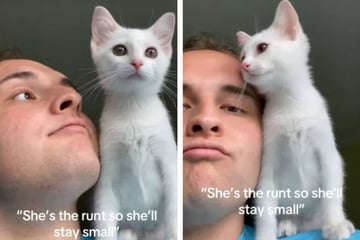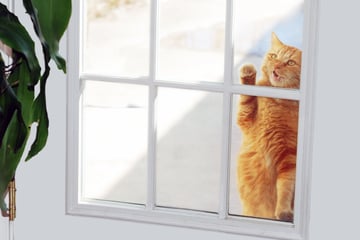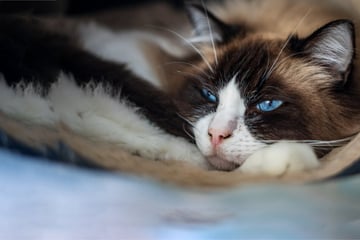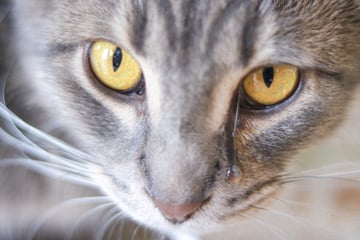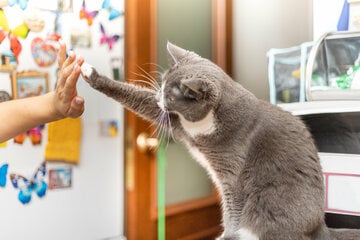Why is my cat twitching: Harmless quirk or health problem?
You may have noticed your cat twitching in its sleep or when it's doing its business in the litter. So what exactly is going on and should you be worried? Here's what you need to know.
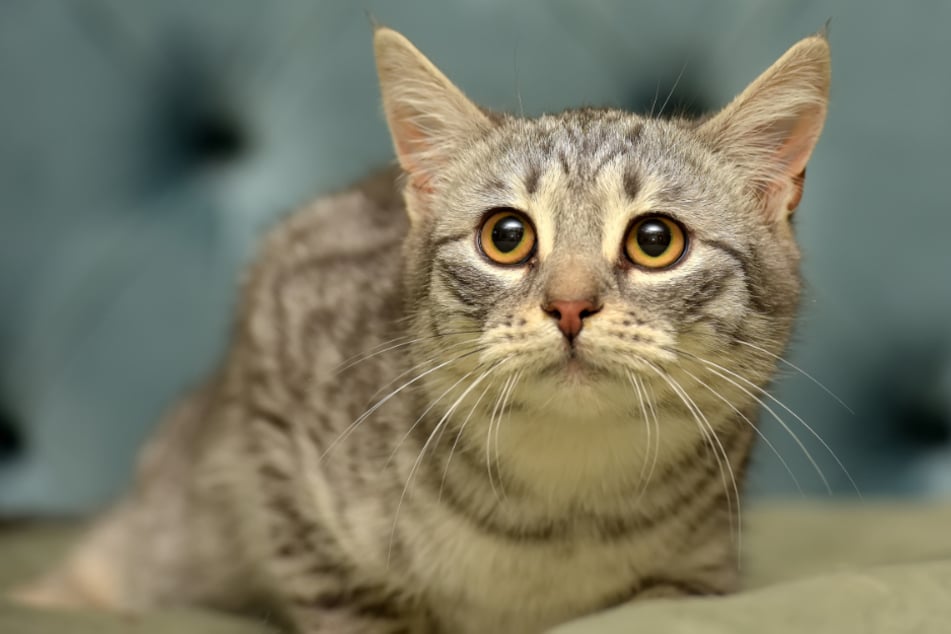
Some cat owners will freak out when they notice their pet suddenly having a twitch attack.
First off, take a deep breath – there are many reasons why this could be happening, and the vast majority of them are pretty harmless.
That doesn't mean you shouldn't stay vigilant and take it seriously if your cat starts twitching violently, or more often than it used to.
The veterinarian should be your first port of call for any medical advice, even if it turns out in the end that there was no reason to be concerned.
In the meantime, TAG24's cat guide will take you through the possible reasons for your cat's twitching and what you should do about it.
Is cat twitching normal?
Cats will often flinch out of reflex, so you shouldn't be concerned if they twitch every now and again, as it's totally normal.
A momentary twitch is nothing to worry about, but if it gets more regular and severe or it turns into a full-blown spasm, that's a different matter.
Why is my cat twitching?
There are many potential reasons why your cat might twitch. They include but are not limited to annoyance, nightmares, pregnancy, fleas or ticks, or something more serious. Before you self-diagnose, though, you should make sure to jump in the car and take your cat to the veterinarian.
Cats twitch when they get annoyed
Have you been getting on your feline friend's nerves? Let's be honest, that's not exactly hard to do. So sometimes, when your cat is twitching, you're likely to be the one who's in danger.
Twitches can be a warning sign to back off, and you should respect it. Give your cat some space.
Why is my cat twitching in its sleep?
You might have noticed that your cat often twitches when it's fast asleep. Whether it's a flicking paw or a sudden jerk of the head, the most likely explanation is that your kitty is having a bad dream.
If this is coupled with other symptoms, though, something more worrying might be going on.
Here what to look out for:
- Continued twitching after your cat wakes up
- The same area of your cat's body repeatedly twitches
- Sudden and noticeable behavioral changes
- Vomiting
- Increased apathy
- Sudden loss of appetite
If your cat has been exhibiting some of these symptoms, they could be suffering from convulsions, neuritis, diabetes, or even epilepsy – all very good reasons to hurry off to the vet.
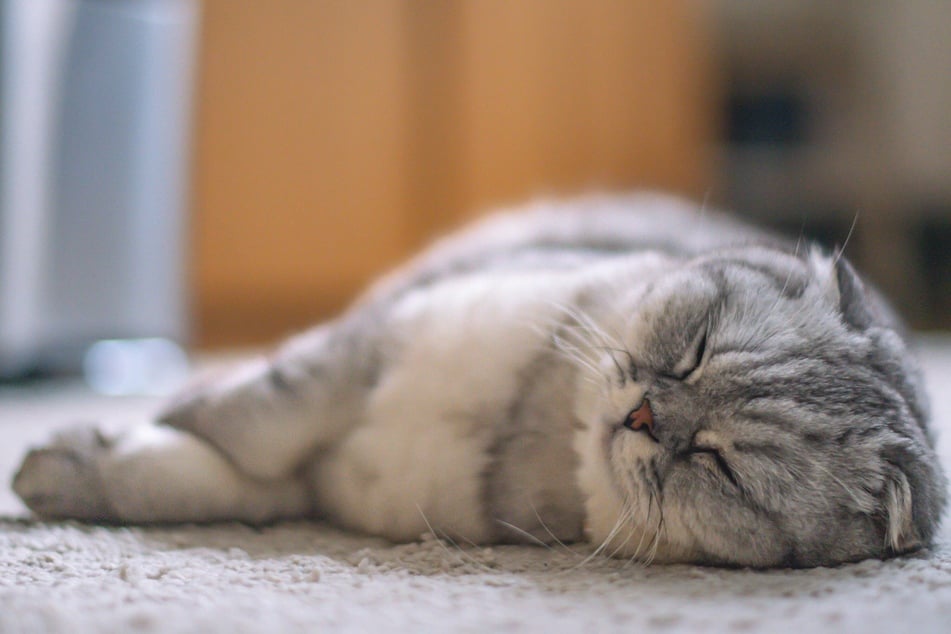
Why does my cat's tails twitch?
Unhappiness, revulsion, annoyance, or even excitement – the flicking and twitching of a cat tail can mean a bunch of things.
Something could have awoken your ferocious feline's hunting instinct. Another possibility is that your cat thinks it's in a dangerous or threatening situation.
Either way, if your cat's tail is twitching or swishing around, you probably don't have anything to worry about.
Why does my cat's back and body twitch?
Cats have a fascinating physiology. Case in point: a small muscle on a cat's back – called the cutaneous trunci – gives off a response called the panniculus reflex.
This muscle is behind your cat's back twitching slightly, as a way of repelling foreign bodies or insects.
Again, nothing to worry about here.
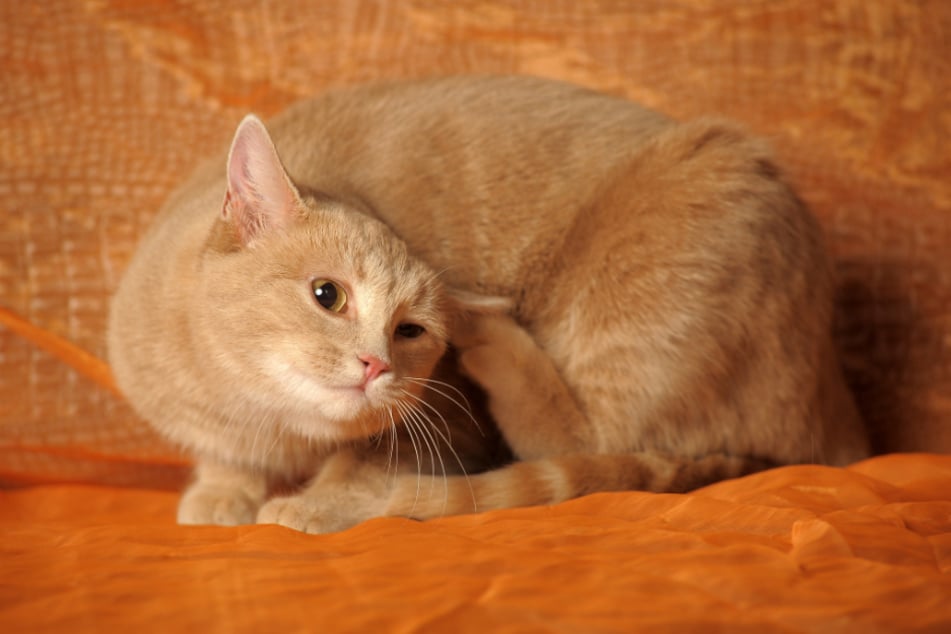
Why does my cat twitch and scratch itself constantly?
If your cat has suddenly become restless and twitchy, and it scratches itself frequently or brushes and licks itself more than usual, then it may have a parasite infestation.
Ticks, fleas, and mites, all cause a lot of discomfort in your kitty, which will lead to physical responses.
If you discover red or crusting skin, bruises, a change in your cat's poo, hair loss, or blistering, it's possible that your cat has an infestation or possibly an allergy to something. That means it's time for – yes, you've guessed it – the veterinarian.
Pregnant cat twitches
A common symptom of pregnancy in cats is an electrolyte imbalance, which can cause spasms and twitching.
This especially goes if your cat is close to giving birth, or about to go into labor, which may be coupled with sudden convulsions, severe apathy, dizziness, and disorientation.
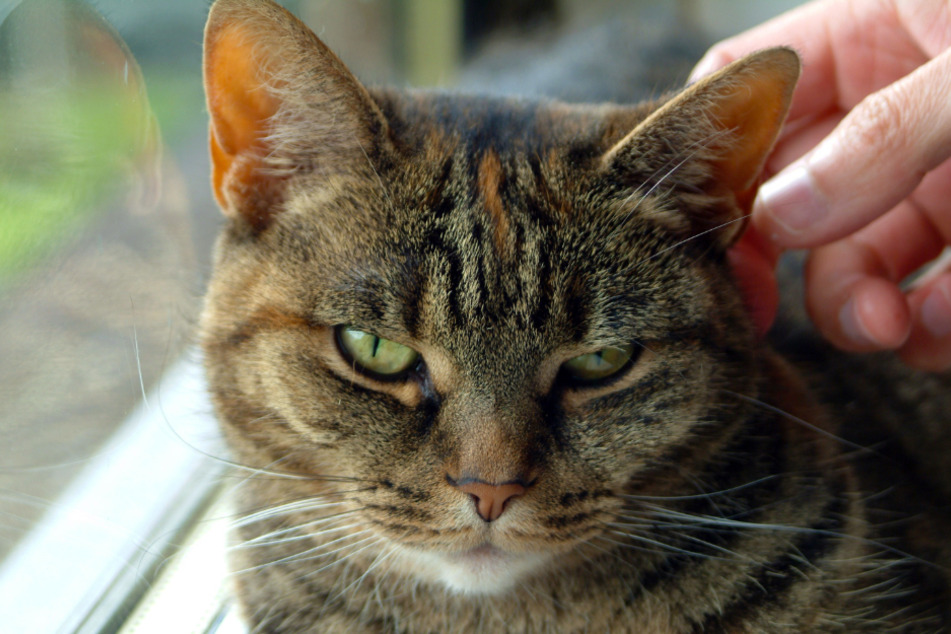
Feline hyperesthesia syndrome and other cat twitching diseases
Uncontrollable and severe twitching in cats can be a sign of severe pain or serious illness.
All the health issues we're about to mention are dangerous and should be treated by professionals as soon as possible.
Hyperesthesia Syndrome
Twitching fur, rolling skin, and a habit of suddenly running around the place are typical symptoms of hyperesthesia syndrome. This is a rare disease in cats, and will also cause them to scratch, bite, and seemingly attack themselves.
Cats may even mutilate themselves through this self-destructive behavior. Hyperesthesia causes your cat's nerves to become hypersensitive, which leads it to chase something approaching hallucinations. You may also notice that your cat won't let you pet it anymore and just doesn't want to be touched.
Just so you know: Hyperesthesia syndrome is classified as a neurological disorder, but we don't currently know the exact cause.
Diabetes
Diabetic cats are generally given insulin, but if their dose is yet to be properly adjusted or is maybe not being applied correctly, it could become hypoglycemic. This can also happen due to dietary problems.
Hypoglycemia in cats will cause twitching, trembling, extreme weakness, and in extreme cases, comas or even death. If your cat has diabetes and begins to exhibit these symptoms, take it to the veterinarian right away.
Epilepsy
Yes, cats can get epilepsy too.
This condition is caused by hypersensitive nerve cells, causing seizures, trembling, and twitching. If your cat goes into a fully-blown seizure, it's a medical emergency which needs immediate professional care.
Keep in mind: Epilepsy-like symptoms can also be brought on by poisoning and metabolic disorders. If a cat has a seizure, no matter the cause, take it to the vet!
Spasms in cats can be caused by a variety of reasons
It's entirely normal for cats to twitch sometimes. But if your furry friend starts twitching more frequently, or seems to go into uncontrollable spasms, then it might be suffering from something more serious.
Remember, when in doubt, don't hang about: just go to the vet!
Cover photo: 123RF / evdoha
